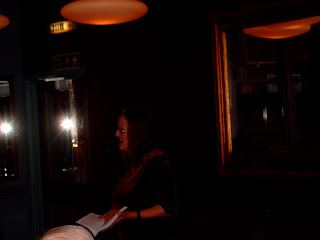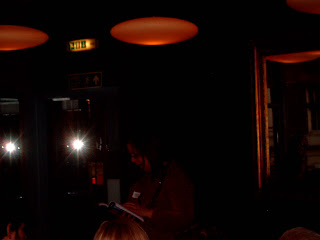General notes about our titles Bridge House publishes books which are a little bit different. Making Changes gives you the flavour of what we are looking for. Each of the books listed below show working titles only. The title eventually comes from something in one of the stories.
12 Days of Christmas 2009 Thought-provoking stories 4,000 – 8,000 words long. See Making Changes “Jigsaw” and “Dancing Man” for guidance. 12 stories will be published.
Deadline: 30th June 2009 Publication November 2009
An Advent Calendar of Stories –children’s version 2009These should be non-religious, thought-provoking, life affirming 1,000 – 3,000 see – Making Changes “Midge and the Pony” or “Toast and Jam” for guidance. 24 stories will be published. They should be suitable for junior school children. It should make a good assembly read.
Deadline 30th May 2009 Publication date November 2009
A suitcase full of stories – adult version 2009 Stories which will make you laugh or make you cry. 3,000 to 6,000 words. 15 stories will be published.
Deadline 31st January 2009 Publication May 2009
A suitcase full of stories – children’s version 2009 Adventure stories suitable for junior school children 2,000 to 4,000 words. 15 stories will be published.
Deadline 31st January 2009 Publication May 2009
Ghost Stories Ghost stories, possibly true, 2,000 – 4,000, suitable for adults. These should be convincing and not gratuitous horror.
15 -25 stories will be published.
Deadline 31st March 2009 . Publication October 2009
Horror StoriesStories suitable for teens and young adults. 2,000 – 4,000 words long. 15-25 will be published. Horror stories with a literary touch.
Deadline 31st March. Publication October 2009
Real Bible StoriesWhat was it actually like in those days? How did people see Jesus, or Noah? Most likely as really strange people. Tell it the way it was. See Making Changes “Ramini’s Eyes” and “Mantek’s Journey”. Aim for older KS2 and KS3. Also, Gill James on Author’s Den – “The First Pot Luck Supper”
Deadline 28th February Publication August 2009
Two sides to every storyTell a well-known fairy story from the point of view of a lesser character or even the baddy. 3,000 – 6,000 .12-15 stories. Suitable for all ages.
Deadline March 31st Publication September 2009
Submission Process Please email your submission to bridgehouse@btinternet.com
IF YOU DO NOT FOLLOW THESE RULES TO THE LETTER WE SHALL NOT LOOK AT YOUR WORK EVEN IF YOU SEEM TO BE THE NEXT STEPHEN KING OR J K ROWLING
• Your submission should be sent as a Word document attachment to you email.
• Use standard format: double-spaced, indent paragraphs, justified left, ragged right.
• House-style: double curly quotes for direct speech, italics for thoughts
• Please use a header and footer on your document. In the header, please put your name as you would like it to appear in the book, should we accept you, the full title of the story, the page number and the number of pages. Use the “view” function on Word. e.g.
Mantek’s Journey 2 of 17 Gill James
• In the footer, please put your full contact details and your name as you would like it to appear in the book, should your work be accepted. E.g
Gillian M. James, 43, The Crescent, Benton, Lancs M24 9BC, 0161 453 675, g.james@bestinternet.com
• Please name your document the title of the story and your surname. You may shorten this if you wish; e.g.
Curious Incident Haddon.doc
• In the subject of the email, please put Submission for …. E.g.
Submission for Ghost Stories 2009
• In the body of the email, tell us a bit about yourself. This is just so that we get to know you and will not be used for anything. If you’re successful, you’ll be asked for a full bio later. No more than 200 words, please.
Decisions will be made within a few days of each submission deadline. However, we may reject your manuscript before that time if it is obviously unsuitable. Do try again.
If we hang on to your script for longer, this is a good sign. We may ask for revisions, sometimes substantial. Some scripts need less revision. Those are of course more attractive to us. This can lead to a later rejection of some scripts. In this case, we try to give you some feedback.
There were a lot of “almosts” for “Making Changes”. We hope those people will try for one of our other anthologies.
We offer a high royalty – it is in effect a 60% profit share pro rata. That’s the equivalent of a single author 15%, after first 100 books have been sold. Authors may also purchase books at 75% of retail price and may sell them on. They still get the profit share royalty on these.
We do not have a massive publicity budget – we market to the big guys and hope you will do the small stuff, but we’ll give you masses of help and pointers.
Everyone involved in our first anthology will probably agree it has all been great fun.


































.JPG)
.JPG)






.jpg)
